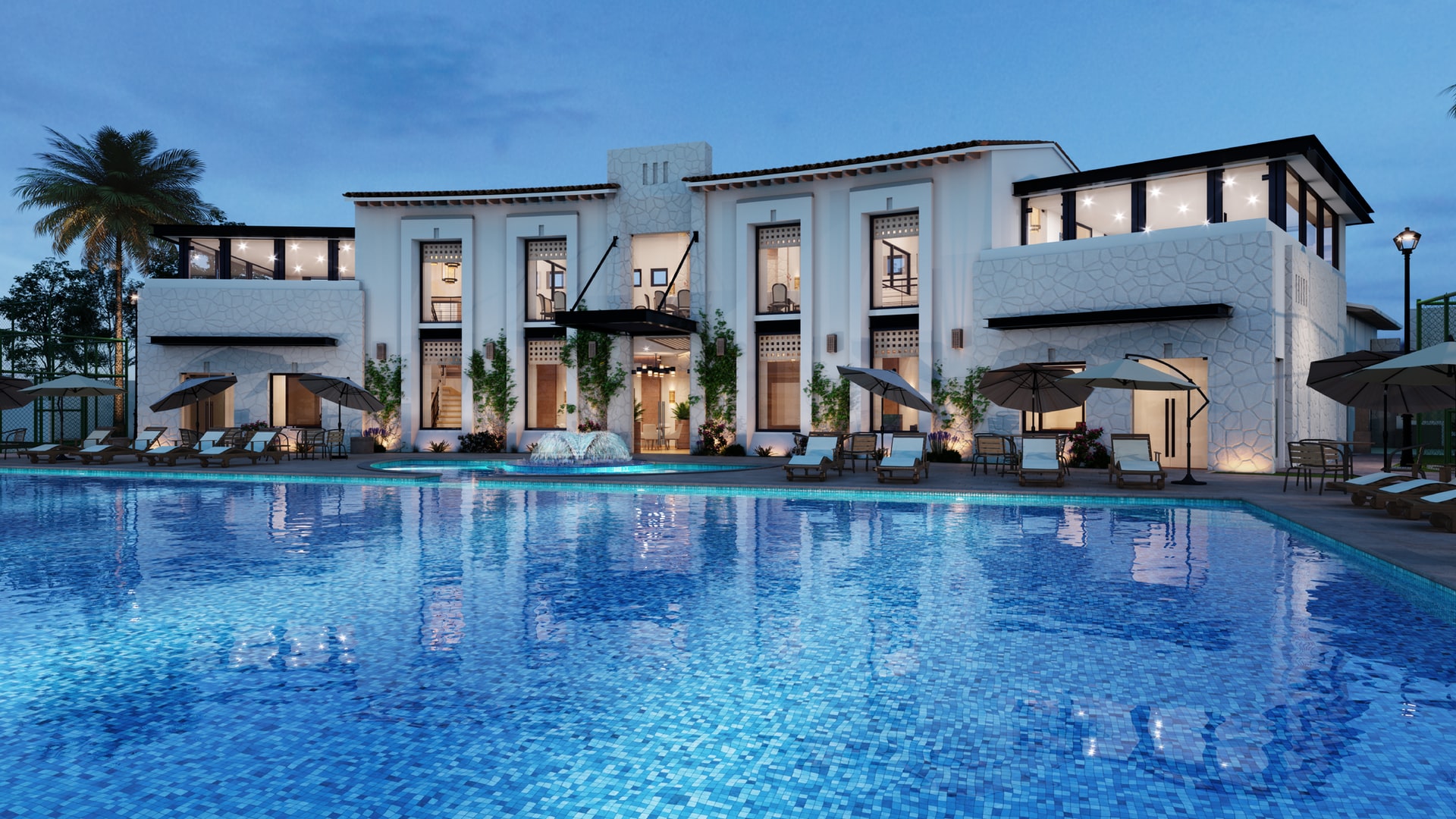Enterprise Hotel is transforming the real estate investment landscape for regular Africans

Long before tech startups democratized stock market investing, anyone looking to invest in the stock market needed a substantial amount of money. However, with the entry of startups such as Risevest, Bamboo, and Chaka, this has changed.
Nigerians could now buy stocks with as little as $10 (5,000) for the first time. Despite the fact that the majority of stocks available are from foreign companies, that innovation provided Nigerians with a way to invest small sums of money.
Similarly, Airbnb upended the hospitality industry by allowing individuals to rent out their homes. In the process, it enabled people to get a piece of the hospitality industry’s pie.
Helping Africans to own commercial real estate

In some ways, owning a home represents the Nigerian dream. However, the lack of suitable mortgage or financing options means that living one’s dream would necessitate a significant upfront investment. Owning a home is out of reach for the majority of Nigerians, with only 2% reportedly having up to 500,000 ($870) in bank deposits.
Enterprise Hotel, a fractional investment startup, hopes to change this by allowing Africans to invest in commercial real estate with as little as 30,000 ($52).
Individuals can now own properties with minimal investments, similar to the model used by investment tech startups. The startup offers three product categories, the first of which is the room sale. Individuals can buy a room outright under this arrangement.
The second level is the block sale, and for this, Enterprise Hotel divides a room into ten blocks, allowing people to purchase each block individually. As an example, if the price of a room is set at 30 million, a block would cost 3 million.
The last unit is sold, and with it, Enterprise Hotel divides the room into a thousand parts. As a result, it becomes easier for more people, regardless of income level, to purchase real estate.
How does the Enterprise Hotel make money?
Enterprise Hotel generates revenue in two ways. The first is accomplished through the sale of the rooms, and the second is accomplished through a management fee paid by the investors. Enterprise Hotel covers management costs, including recruitment on behalf of the investors, with the management fee.
So, why real estate? Enterprise Hotel’s co-founder and CEO is Uche Ajaere. You may recognize the surname because he is the younger brother of Chidi Ajaere, the Chairman of GIG Group.
While the GIG Group is best known for its transportation company, GIGM, the company also has investments in other industries, including real estate. Uche has been involved in the real estate division’s operations for over eight years. At the same time, he has kept a close eye on developments in Nigeria’s tech ecosystem.
His experience working in real estate taught him that only a few people could afford to buy or own real estate. A four-bedroom duplex in Lekki, Lagos State, costs around $100 million ($173,913). This is out of reach for the majority of Nigerians who earn less than $150,000 ($300) per year.
As a result, he decided to launch a company that allows people to own real estate regardless of their financial situation.
Competition and challenges
The majority of the growth in the Nigerian startup space has been in fintech, with a few other industries represented. With startups like Spleet and Muster attempting to solve the problem of rent for Nigerians, the real estate sector has seen very little innovation.
One reason for this is that technology does not completely solve real estate problems. At best, it facilitates processes. In contrast to other industries, the barrier to entry in real estate is high. Furthermore, it may take up to 15 years for investors to see a return on their investment. As a result, it is not surprising that real estate receives less investment than other industries.
“In the technology space, people will always wonder, ‘How affordable is it to get this product?'” And how quickly will I make a profit?’
“With the promise of higher returns in other industries,” Uche wonders, “why would anyone want to invest in real estate?”
Enterprise Hotel is working to lower this high entry barrier. If, for example, a room in an Enterprise Hotel costs 30 million ($52,173), when divided into 1,000 units, the price drops to around 30,000 ($60), which is much more affordable for most Nigerians.
Aside from affordability, Enterprise Hotel provides investors with the opportunity to receive a return on their investment within two to four years. That’s impressive given that most real estate purchases require 15 to 20 years to recoup their initial investment.
Enterprise Hotel offers its investors a variety of ways to profit. The most common route is through hotel reservations. However, that is not all; investors can profit from every activity that occurs in the rooms they own, as well as other services provided by the hotel. As an example, if a guest eats, drinks, or pays for dry cleaning services in the room, the investors receive a portion of the proceeds.
But that isn’t all. One of the reasons many Nigerians purchase land is that it frequently appreciates in value. Chidi reveals that Enterprise Hotel investments will be evaluated based on the value reflected on the app. Investors can also sell their properties, though Enterprise Hotel would prefer to have first refusal on any property.
Enterprise Hotel already has properties in Lagos, Abuja, Benin, and Port Harcourt, with plans to expand throughout Nigeria. Chidi reveals that the company’s long-term goal is to have an Enterprise Hotel in every major city on the planet.
Building in a sector with few or no precedents could be difficult for Enterprise Hotel. While there are currently startups in Nigeria offering fractional investment services, the majority are in the financial services space. Nonetheless, there is much to be learned from their success.
Although Enterprise Hotel’s business model may allow them to offer real estate investments for as little as 30,000 ($60), this is still a significant investment for the majority of Nigerians. While the ability to invest small amounts is appealing, the reality is that the returns on such investments would be small, potentially discouraging potential users. As a result, serving a market with higher disposable income may be the key to Enterprise Hotel’s success.
Attracting investment
Building a startup like Enterprise Hotel necessitates massive investments. So far, no institutional investment has been made in Enterprise Hotel. Chidi admits that, while they are open to receiving investments, the priority at the moment is to gain significant traction before approaching investors.
“Unlike other startups, we’re not just selling an app.” We want to make sure that when we talk to investors in the coming months, we’re talking about value. We want to show them the first set of hotels we’ve built, as well as investors who’ve invested in them and are already profiting. Then we’ll be able to start talking to investors.”
Apart from providing more people with access to real estate investments, Enterprise Hotel indirectly addresses another issue. Uche explains that because users own the properties outright, they can use them as collateral when applying for loans.
Traditional banks in Nigeria, where Enterprise Hotel operates, have traditionally shied away from lending to individuals who do not fall into their preferred high net worth group. And, in cases where they are willing to do so, collateral is required. The Enterprise Hotel provides a way out for users. They can now invest in real estate with the assets serving as collateral.
Building any kind of business is difficult. Operating in the real estate industry, with its high financial requirements, presents a significant challenge for Enterprise Hotel. The success of startups such as Bamboo and Risevest, on the other hand, suggests that Enterprise Hotel may be onto something.






